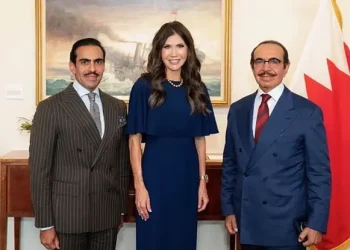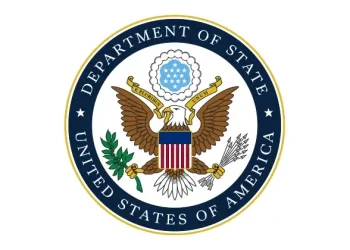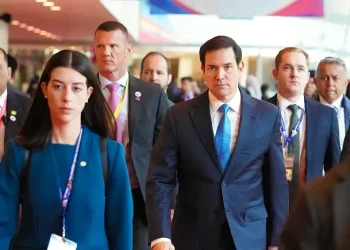The US government announced sanctions against Al Haq, Al Mezan Center for Human Rights, and the Palestinian Centre for Human Rights.
These designations, made under Executive Order 14203, follow the International Criminal Court’s issuance of arrest warrants against Israeli officials over the Gaza conflict. Washington maintains these actions represent illegitimate judicial overreach.
Background to the Decision
The ICC recently issued warrants for Israeli leaders, including Prime Minister Benjamin Netanyahu, alleging war crimes in Gaza. The United States and Israel, both non-parties to the Rome Statute, reject the ICC’s jurisdiction.
President Trump formalized this stance through Executive Order 14203 in February 2025, authorizing sanctions on ICC officials and those aiding investigations.
Details of the Sanctions
The three NGOs were identified for directly supporting ICC activities. Sanctions include asset freezes within the United States and restrictions on financial access.
These measures mirror earlier designations against ICC judges and prosecutors engaged in cases involving Israel and US officials.
Impacted Organizations
- Al Haq
- Al Mezan Center for Human Rights
- Palestinian Centre for Human Rights (PCHR)
Policy Rationale
Secretary of State Marco Rubio framed the sanctions as necessary to protect US and allied sovereignty. Officials argue that ICC actions threaten American troops and set a precedent undermining national independence.
Washington emphasizes that international justice mechanisms should not impose authority on nations that have not consented to their jurisdiction.
International Reaction
The ICC and the United Nations strongly condemned the sanctions, calling them attacks on judicial independence.
Amnesty International described the measures as a betrayal of international justice, warning that they could embolden perpetrators of serious crimes. Despite these criticisms, US officials remain firm in their stance.
| Target | Role | Sanction Details |
|---|---|---|
| Al Haq | NGO aiding ICC cases | Assets frozen, financial access blocked |
| Al Mezan Center | NGO supporting Gaza investigations | Assets frozen, financial access blocked |
| PCHR | NGO assisting ICC filings | Assets frozen, financial access blocked |
| Kimberly Prost | ICC Judge (Canada) | Travel and financial restrictions |
| Nicolas Guillou | ICC Judge (France) | Travel and financial restrictions |
Geopolitical Implications
This latest action strengthens the US-Israel alliance by directly countering ICC investigations. By sanctioning NGOs, Washington signals a willingness to escalate measures beyond individual judges or prosecutors.
The decision underscores US determination to resist international courts imposing authority over non-member states.
It also warns other organizations against cooperating with ICC efforts targeting US or Israeli officials.
Looking Ahead
The sanctions reflect a broader US strategy of protecting sovereignty while challenging what it sees as politicized lawfare.
While critics argue the measures undermine global accountability, Washington maintains they are essential for safeguarding national interests and allied security.
Sources: US Department of State, Executive Order 14203, Amnesty International, United Nations, Aljazeera, and ICC press statements.
Prepared by Ivan Alexander Golden, Founder of THX News™, an independent news organization delivering timely insights from global official sources. Combines AI-analyzed research with human-edited accuracy and context.








